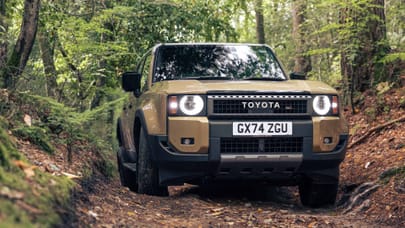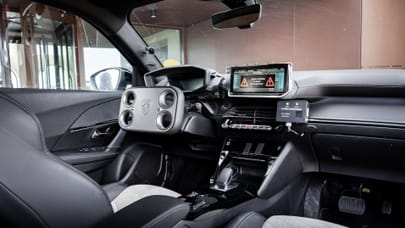
What3Words reckons traditional postcodes are now 'largely irrelevant'
Could pumping a postcode in the sat nav soon be a thing of the past?
Apparently the way the world used to be mapped isn’t fit for purpose in today’s modern world. At least, that’s what Joe Poynter, the director of What3Words, reckons.
Speaking at the SMMT Connected conference recently, Poynter talked about the limitations of conventional addresses, mentioning the difficulties faced by delivery drivers when postcodes cover more than one property – especially across a larger area of land in rural regions – as a simple example.
Quick history lesson: postcodes were introduced nationally in the 1960s, though London had them 100 years earlier (of course it did). Followed by Manchester and Liverpool, and then Newcastle, Glasgow, Leeds, Birmingham, Bristol and Dublin in the 1930s.
It wasn’t until after World War II that the volume of mail required an easier system for the regional sorting offices. Since we can’t remember the last time we posted a letter, we kind of see Poynter’s point.
And so Poynter reckons his company’s solution, which divides the entire world into three-by-three metre squares and assigns unique three-word labels to each square, is more relevant now. Might postcode sat nav trouble soon be a thing of the past?
Well, let's see. Despite the fact some 85 per cent of UK emergency services use the app, it’s faced criticism from various people who've found issues with spelling, incorrect locations after a slow update, and some words sounding far too similar to be able to be picked apart.
One example that springs to mind: in 2021, web user Aaron Toponce discovered that ‘reforming.overdo.refresh’ and ‘reforming.overdue.refresh’ were both locations in Brazil... just 30 miles apart.
Plus, local accents aren’t always understood by the app, and there are squares that have been randomly assigned rude words as their marker. Oops.
Nothing could be less offensive than a postcode though, and GPS coordinates still do a pretty effective job of navigating planes and ships all over the globe every day. So, given the immense amount of change, shouldn't we just leave the humble postcode alone? What say you, drivers of the Internet?
Top Gear
Newsletter
Thank you for subscribing to our newsletter. Look out for your regular round-up of news, reviews and offers in your inbox.
Get all the latest news, reviews and exclusives, direct to your inbox.
Trending this week
- Car Review
BMW 1 Series
- Top Gear's Top 9
Nine dreadful bits of 'homeware' made by carmakers








